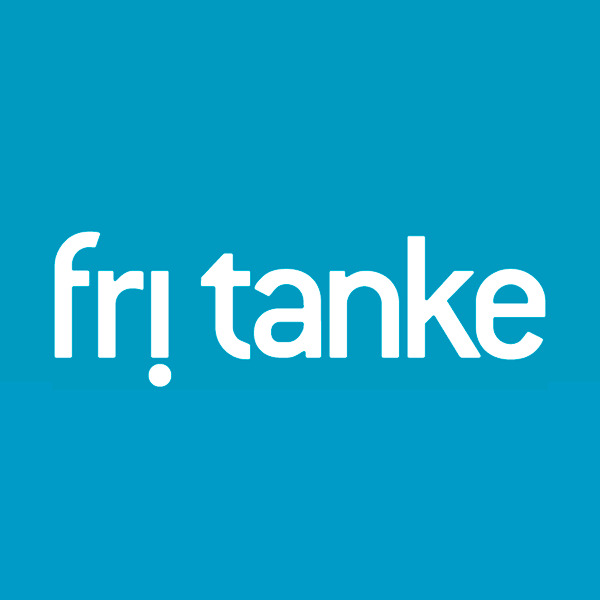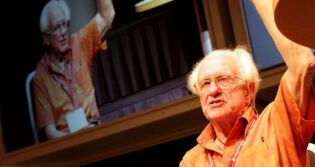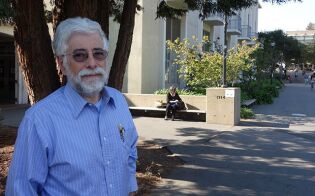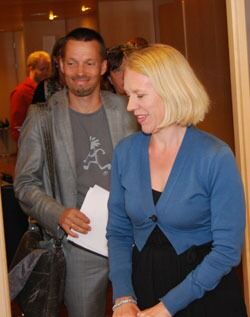
President of the Board Åse Kleveland thinks that last week's state church settlement in the Norwegian National Assembly represents very satisfactory development.
The Norwegian Humanist Association on the State-church issue: - A decisive break-through
#The settlement regarding the State/Church represents a decisive break-through for the viewpoints of the Norwegian Humanist Association (NHA), asserts...
Publisert: 18.04.2008 kl 13:34
Sist oppdatert: 18.04.2008 kl 13:42
The settlement regarding the State/Church represents a decisive break-through for the viewpoints of the Norwegian Humanist Association (NHA), asserts President of the Board, Åse Kleveland.
Text: Kirsti Bergh
Published: April 18, 2008
- This constitutes a decisive break-through for the viewpoints and visions of NHA, and subsequent to ratification it will clear the road for a future division between state and church, says President Åse Kleveland.
Together with the Secretary General of NHA, Kristin Mile, she is very positive to the improvement of today's state church establishment outlined in the broad political compromise, even if it is far from the resolution of principles defined as the initial ambition of the association.
Thus, in the time to come, the Norwegian Church will have a special attachment to the Constitution, even if it is no longer the case that "the evangelical-lutheran teachings shall be the religion of the state", but "The Norwegian Church shall be the church of the Norwegian people".
Furthermore, the church shall have its own Church Act, and regional and central church management will still remain a subdivision of the public administration, just to mention an example. At the same time it will be comprised in the Constitution that other faith- and life stance associations shall be entitled to (financial) support in line with the Norwegian Church.
- We make a note of the fact that this is how far the Government was able to proceed this time, but, on behalf of NHA, we regret that a multicultural country like Norway will give priority to a single life stance community in the Constitution, even if all other faith- and life stance associations will be given equal support, declares Kleveland.
NHA react positively to the fact that the Norwegian Church will soon be able to elect its own bishops and deans, and to the improvement of Article 2, which implies that Norway no longer will have a state religion consistent with today's situation.
- We are very glad that this indicates a break-through for our view points, when the state of Norway now proceeds from a constitutional provision for a single life stance community to the legal defense of democracy, a state founded on legal protection and human rights, says Kleveland.
Article 2 of the Constitution shall now read as follows: "The articles of faith remain our Christian and humanistic heritage. This Constitution shall ensure democracy, a state founded on legal protection and the articles of human rights".
From "hazy" to clear
Secretary General of NHA, Kristin Mile is very pleased.
- It is emphasised that Christianity and humanism is our common heritage, while the important future direction, being secured by the Constitution, is democracy, a state founded on legal protection and human rights. This is a major leap ahead. For NHA whose life stance foundation is the articles of human rights, it is a victory to have these articles thus included in this important Article of the Constitution. What we get now is two "hazy" values as opposed to three very clear, concrete value definitions in the second sentence, says Mile.
- Does this resolution imply that NHA can suspend the war against the state church?
- NHA will still have to focus on the work for a real life stance equality, emphasises Mile.
- But we are now proceeding from actual fighting, to a stage where the consequences of this resolution of principles will be meticulously worked out, Kleveland joins in.
She adds that for the moment no decision has been made as to how the financial and administrative relationship between the state and the church will be resolved.
However, NHA is not at all pleased that the Norwegian Church will continue to oversee the management of burials and funerals, but - on the other hand - the association is rather more positive to the sections in the agreement that secure an investigation into the legalising of the responsibility of the municipalities with regard to unbiased life stance ceremonial locations for weddings and funerals.
There are no optimal solutions. In the practical, everyday life of a democracy there are only compromises, and here we have a compromise where we have achieved a break-through for important demands. This we interpret as a victory, underlines Kleveland.
- Maintaining all privileges
The Leader of Norwegian Humanist Youth, Lars Petter Helgestad, is happy that the adjustments seem to be pointing in the right direction. At the same time he finds it frustrating that it is impossible to advance further towards a complete division between state and church in the year 2008.
- And I take note that, actually, we are in the process of getting into a situation where the state church will get rid of all the disadvantages of being a state church, as well as retaining all its privileges, stresses Helgestad.
- Tiny steps in the right direction
- We are on the right track, but we advance very, very slowly, is the opinion of former NHA General Secretary Lars Gule.
- The point is that the ideal solution, a complete division between state and church is not a radical utopia and an impossible project. This is well within the frame of what is a practical, political possibility. But we have a cabinet minister and a party that is clinging to an obsolete establishment. It is rather impressive that they are able to advocate a policy in defense of this anachronism, like Mr. Giske and fractions within the Labour Party and the Centre Party have been doing, says Mr. Gule.
Read more about the unanimous State-church agreement.
TODAY's STATE CHURCH ESTABLISHMENT IN NORWAY
As of today, the Norwegian Church is the state church of Norway. In Article 2 of the Constitution the evangelical-lutheran religion is defined as the public religion of the state. Consequently, the bishops and priests of the Norwegian Church are government officials and civil servants.
In Norway it is also required that one half of the government members are members of the state church, inasmuch as the government constitutes its the principal board (church cabinet meeting). The Norwegian king is the head of the Norwegian Church. He is obliged to embrace the evangelical-lutheran religion and to uphold and protect this religion (Article 4). As monarch, the King is without personal religious freedom.
These Articles of the Constitution regulate the state/church establishment in Norway.
Article 2
All citizens of the realm have religious freedom. The evangelical-lutheran religion remains the official religion of the state. Citizens embracing this religion are committed to raise their children likewise.
Article 4
The King is obliged to embrace the evangelical-lutheran religion, uphold and protect the same.
Article 12, 2nd section
Of the government members, more than one half of the number of members shall embrace the official state religion.
Article 16
The King ordains all official church services and ceremonies, all meetings and congregations pertaining to religious issues, and controls that the official teachers of the religion comply with the prescribed norms.
Article 21, first full stop
The King elects and appoints, upon consulting with his cabinet, all civil, clerical and military government officials.
Article 22, first and second full stop
The prime minister and the other members of the cabinet, as well as the secretaries of state, might, without prior judgment, be removed by the King, upon his receiving a statement of the cabinet. This also applies to (...) civil and clerical public officers in important positions (..).
Article 27, 2nd section
Members of the cabinet, not embracing the official religion of the state, shall not attend discussions pertaining to state church issues.
Translation from Norwegian: Tone Haugen Jensen
English Vis flere
It was difficult, but this summer "The Friendly Atheist" Hemant Mehta, the man behind one of America's best known atheist blogs, chose to quit teaching to become a full time blogger.
Refutes secularization of the US:
«Growth of the religiously un-affiliated not linked to personal faith»
«They enjoy being obnoxious», American sociologist Claude Fischer says about the new atheists. He also claims religious faith in the US is not declining. (Sept. 16, 2014)






